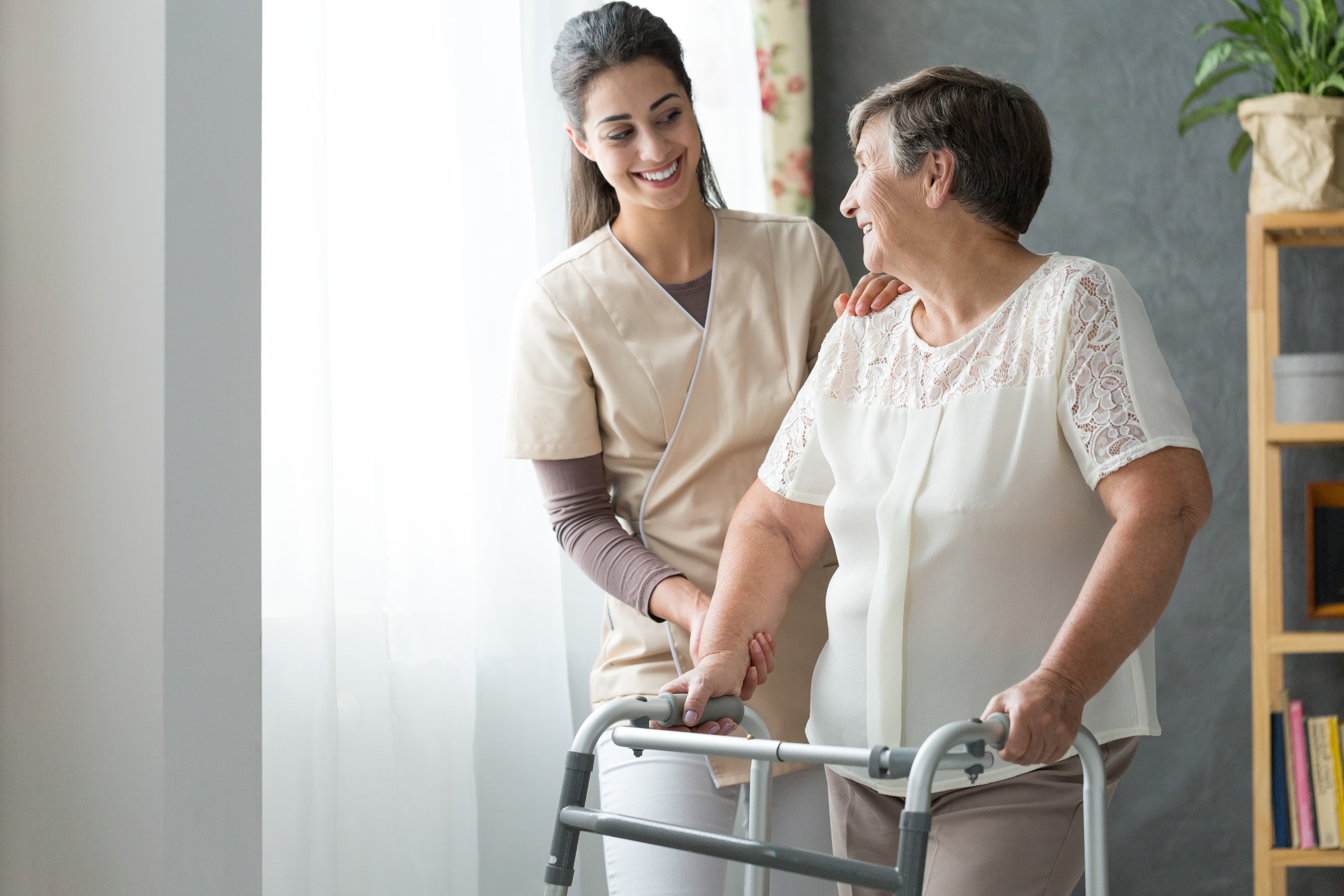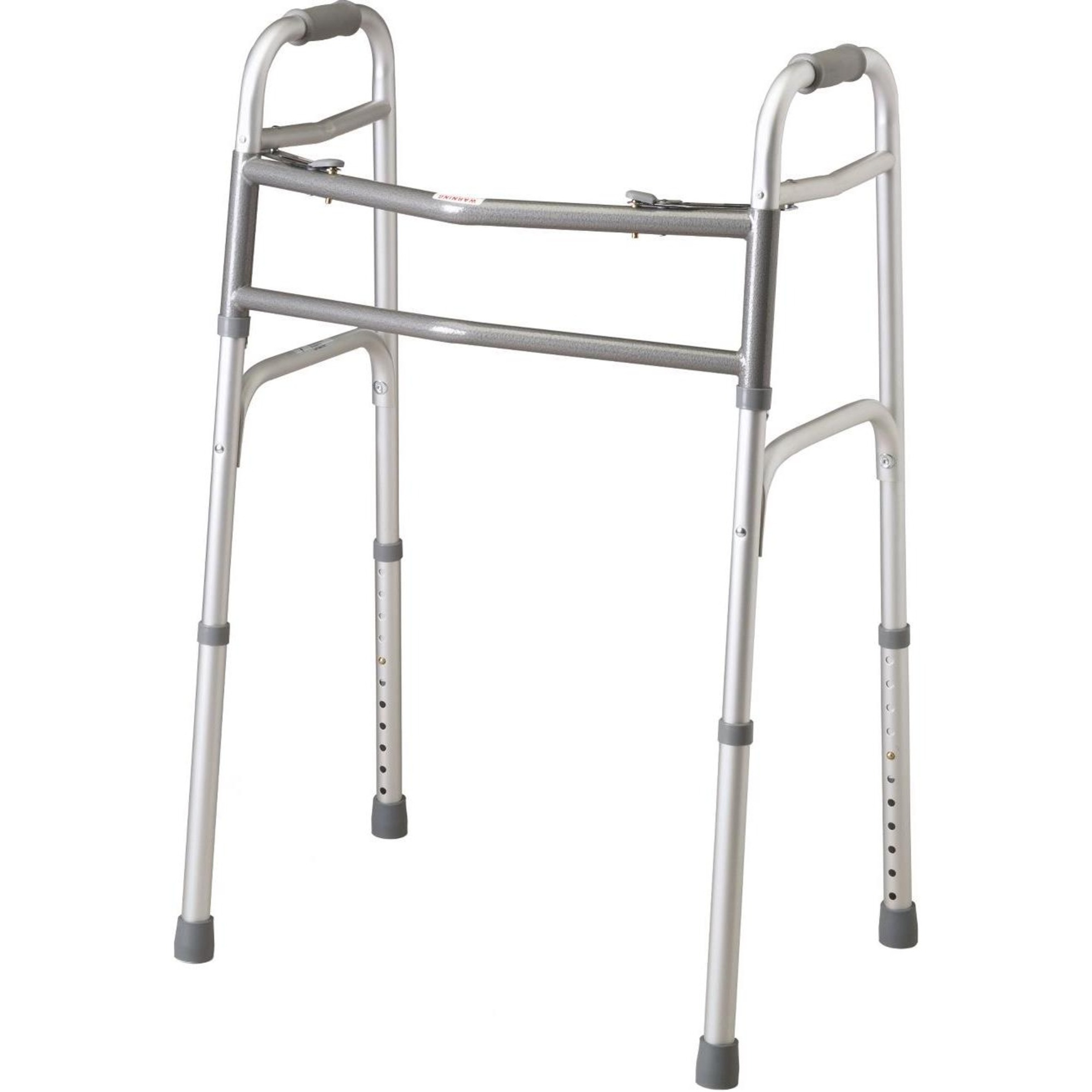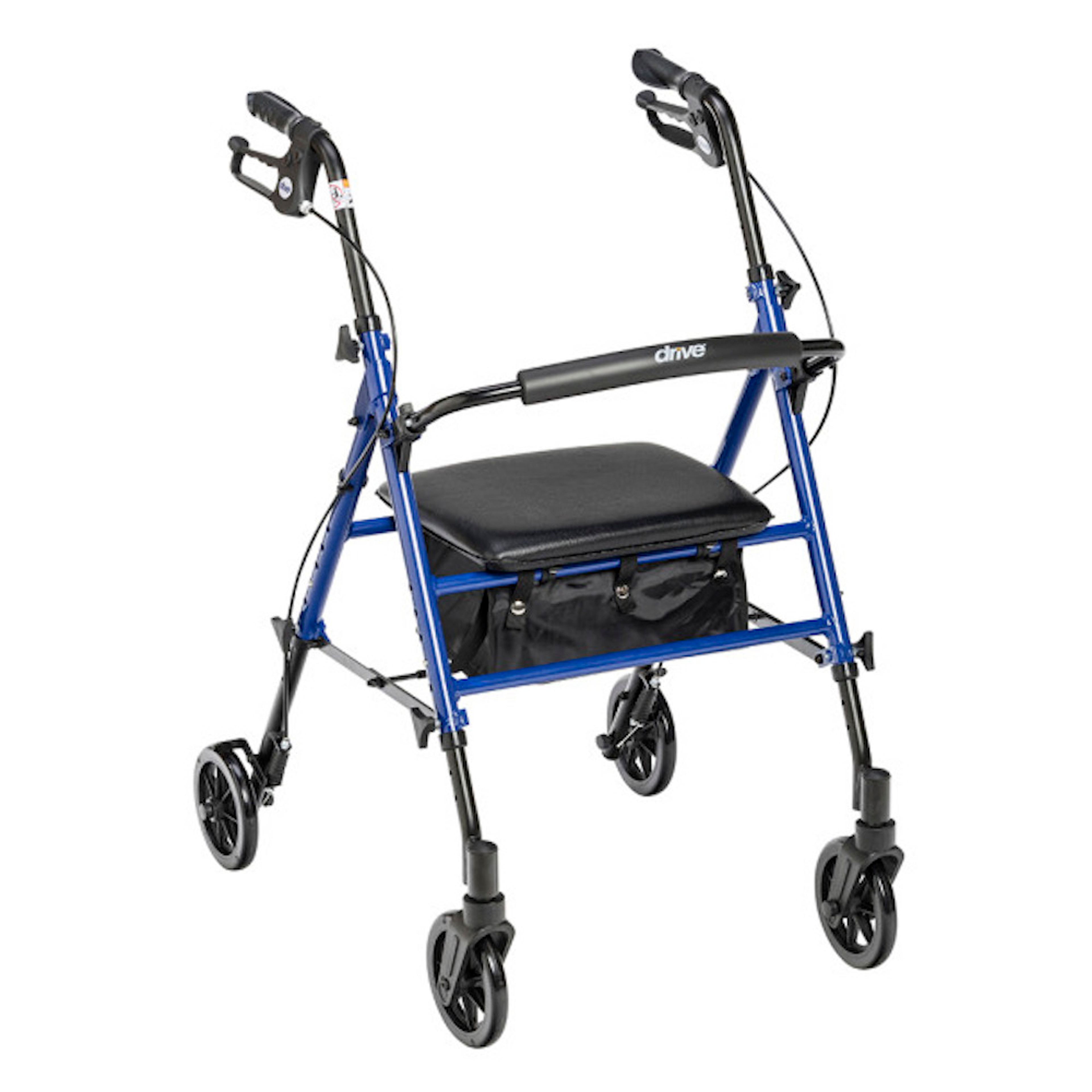As we age, injuries or conditions can limit our mobility which is why it isn’t uncommon for older adults to use walkers to get around. With so many options available, how do you choose the best walker?
Great question! It’s actually one of the most common asks our Care Specialists get. So, we’ve created this guide with some simple tips and tricks. After you’re finished reading, you’ll know exactly which factors to consider before making a purchase.
Types of Walkers
Before choosing a walker, it’s important to familiarize yourself with the different types.
Kel Ramirez, a physical therapist with more than a decade of experience helping seniors preserve their mobility and the founder of KeepingGrandparentsSafe, says there are several types of walkers to consider:
Standard walkers
Standard walkers don’t have wheels. The user pushes or lifts the walker a few inches every time they take a step.
Front-wheel walkers
“These walkers have two wheels in the front,” said Ramirez. “And have either rubber end tips, gliders, or tennis balls on the back legs.”
Four-wheel walkers
These walkers have four wheels and a seat in the middle where you’re loved one can sit down. They’re a great choice if your loved one is still relatively independent but needs help every once in a while.
Upright walkers
“Upright walkers are similar to four-wheel walkers in that there are four wheels,” said Ramirez. “However, the placement of the arms is at a higher height to promote an upright posture when walking.”
The type of walker that's right for your loved one depends on their strength, mobility level, and physical abilities.
Best Walkers
To make life easier for family caregivers, we carry several types of walkers here at Carewell. Let’s take a closer look at our three best sellers:
1) McKesson 4 Wheel Folding Rollator
This four-wheel folding rollator has a stainless steel frame that can support users up to 300 lbs. It has a lever for easy height and handle adjustment and 7.5-inch non-marring casters, perfect for indoor and outdoor use.
Key Benefits & Features:
Folds for easy storage and transport
Has an oversized padded seat and backrest, so users can take breaks
Latex free (so it’s safe for people with allergies)
2) Medline Bariatric Folding Walker
This bariatric walker from Medline supports larger people who weigh up to 500 lbs. It has a lightweight, durable aluminum frame with dual side braces that can withstand lots of wear and tear. And the extra wide frame ensures a comfortable fit.
Key Benefits & Features:
Higher weight capacity, perfect for supporting larger patients
Easily adaptable (you can add wheels and other accessories)
Sturdy and doesn’t wobble
3) Drive adjustable Height 4 Wheel Rollator
This adjustable four-wheel rollator is manufactured by Drive Medical. It folds for easy transportation and storage, has a secret pouch for keeping personal items, and features a padded backrest that can be folded up or down.
Key Benefits & Features:
Browse our entire mobility, transportation, and transferring collection here.
Factors to Consider When Choosing a Walker
There are plenty of other factors to consider in addition to the walker type.
Mark Joseph, the founder of ParentalQueries, says you can save time by asking questions like:
How much weight can the walker support?
Does the walker fold for easy storage and transport?
Does the walker have brakes? Are they easy to use and reliable?
Is the seat comfortable and sturdy?
What type of terrain will my loved one be using the walker on?
How tall is your loved one, and how much reach do they need?
“You should also consider whether your loved one has any weight-bearing restrictions,” Ramirez said. “If they’ve been instructed by a surgeon or doctor to put a percentage or small amount of weight on one leg, for instance after surgery, then the front wheel walker is the most appropriate choice.”
“Conversely, an individual who can walk at a faster pace and has minimal to no balance deficits can utilize the four-wheel walker or upright walker. “
“Be sure to do your research and find a walker that meets your loved one’s needs,” Joseph added. “That way, it will be more comfortable for them to use.”
Commonly Asked Questions
1. Do I need to take any measurements before buying a walker?
Yes. Ramirez says you need to take several measurements before choosing a walker, including:
The width of the doorways and/or exits that the walker will be used in
The distance from the bend in your loved one’s wrist to the floor (when standing)
Your loved one’s height (to ensure the walker is ergonomic and comfortable)
Your loved one’s arm length to ensure they can reach the handles of the walker comfortably
Try to choose an adjustable walker. If the frame can go up or down by at least one inch in response to your loved one’s measurements, then you can secure a comfortable fit.
2. Who can help me choose a walker?
Choosing the perfect walker for an elderly loved one can be challenging. Especially if you don’t know what you’re looking for. Instead of doing all the research on your own, consider working with a physical therapist or a geriatric kinesiologist.
These professionals “can help make sure the walker is sized correctly for your loved one, and most importantly, that your loved one walks correctly with the walker,” Ramirez said.
Joseph agrees, noting that “physical therapists and kinesiologists can assess your loved one’s needs and recommend the best type of walker. They can also help you choose the right size to make sure the walker is comfortable and easy to use.”
Takeaways
If you’re thinking about buying a walker for an older loved one, don’t rush the process. Physical therapist Kel Ramirez emphasizes the following approach:
1) Familiarize yourself with the different types of walkers
2) Take inventory of your loved one’s needs (i.e., how much do they weigh? How much support do they need?)
3) Take the necessary measurements (i.e., your loved one’s height, the length of their arms, and the distance between their wrists and the ground when standing)
4) Visit a physical therapist or a kinesiologist
Don’t skip any of these necessary actions. Putting the time and effort in now can help prevent falls and injuries in the future.
Need Helping Finding the Right Walker?
If you still have questions or want to know more about the walkers we carry, please contact our friendly Caregiving Specialists. Call (800) 696-CARE or send an email to support@carewell.com.






